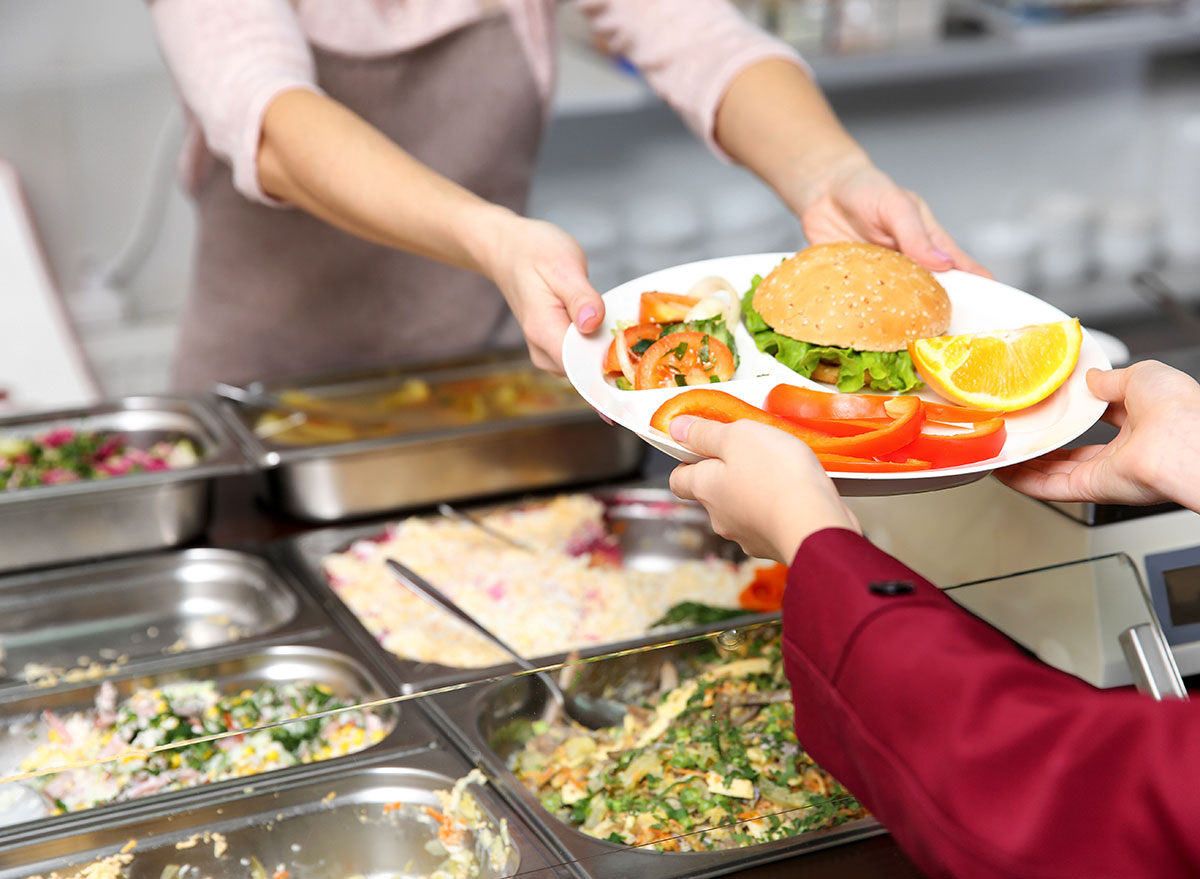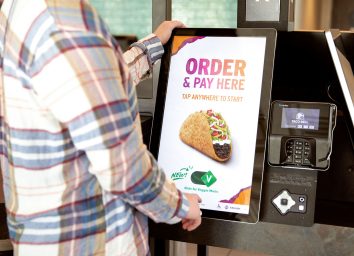Coronavirus Is Having a Dangerous Effect on Americans' Access to Food

Today, the World Health Organization declared the global outbreak of COVID-19, the disease caused by coronavirus, a pandemic after nearly 120,000 people around the world tested positive.
By this point, you're probably feel inundated with info about the coronavirus precautions you should be taking, such as washing your hands, working from home (if you can), and stockpiling food (if you can). But what's not being so readily discussed is how many people in America may soon find it incredibly hard to get their hands on nutritious food to eat.
One in seven people, or 46 million people, in the U.S. rely on food banks, pantries, and meal service programs, according to a 2014 study from Feeding America. Amid the COVID-19 outbreak, many of us are running to the grocery store and stocking up on packaged and canned foods and other non-perishables in the event of self- or mandated quarantine.
However, not everyone is financially fortunate enough to amass supplies in one big shopping spree. In fact, a recent study conducted by First National Bank of Omaha found that 49 percent of adults in the U.S. expect to live paycheck to paycheck this year. Those who do have the extra disposable income, on the other hand, are buying everything in bulk; effectively wiping grocery stores clean of essential products. As a result, this leaves minimal donations behind for local food banks, which then puts even more limitations on those who are already food insecure.
The associate director of the White Center Food Bank in Seattle, Washington, Carmen Smith, told the Kitchn that she's noticed this rampant hoarding of packaged foods and supplies is causing people that wouldn't normally frequent food banks to trickle in, since they cannot find what they need at a normal store. But again, it's hard for food banks to replenish their supplies if grocery store shelves are already empty, as these establishments rely heavily on donations.
"After chatting with the receiving manager at one of the stores, they were completely wiped out earlier in the week, which is why our donations are down," said Smith.
Not only have the effects of coronavirus plagued food banks, but the continuous spread of the disease has also prompted schools to close across the country in an attempt to contain it. While no school sounds like a luxury to students, the reality is far from it—especially for the two-thirds of the 31 million students who financially depend on school lunch.
During a state or federally declared state of emergency (such as an outbreak of a virus), approved districts are allowed to offer additional meal services, with offerings that are similar to what would be served at a summer feeding program. However, since these types of programs require congregate feeding, which requires children to gather at one location to obtain their meal, it's not feasible for this to occur amid the COVID-19 pandemic.
Following the CDC's suggestions, the School Nutrition Association sent an open letter to Agriculture Secretary Sonny Perdue last week asking for meals to be delivered to students to eliminate large groups of people congregating.
"Permit delivery of meals to satellite sites, so schools equipped to do so can deliver meals to multiple locations throughout the community, minimizing families' dependence on public transportation to access meals," wrote Gay Anderson, SNS President.
As of yesterday, the USDA approved such requests, and others, in three states: Washington, California, and Alaska. Only time will tell how many more schools will close during the outbreak, but it goes without saying that the effects of coronavirus are more complex than you may have originally thought. And food scarcity for many people in America can become a serious problem—fast.
How You Can Help
To do your part, don't completely wipe out your local food stores if you have the means to do so. Buy what's necessary for you (and those living with you) to get by, keeping in mind that others will need these foods as well.
Secondly, support your local restaurants who will be struggling due to having to close their doors by ordering delivery or takeout when possible.
You may also consider donating to non-profits like Feeding America, which are helping feed those in need throughout the country.
People who are on the front lines fighting the coronavirus pandemic, such as doctors, nurses, and medical workers, may also appreciate any donations or food deliveries you can extend. A great option is to look to search for your neighborhood or local government accounts on social media to find out the specific ways in which you can donate money, food, or well wishes.








